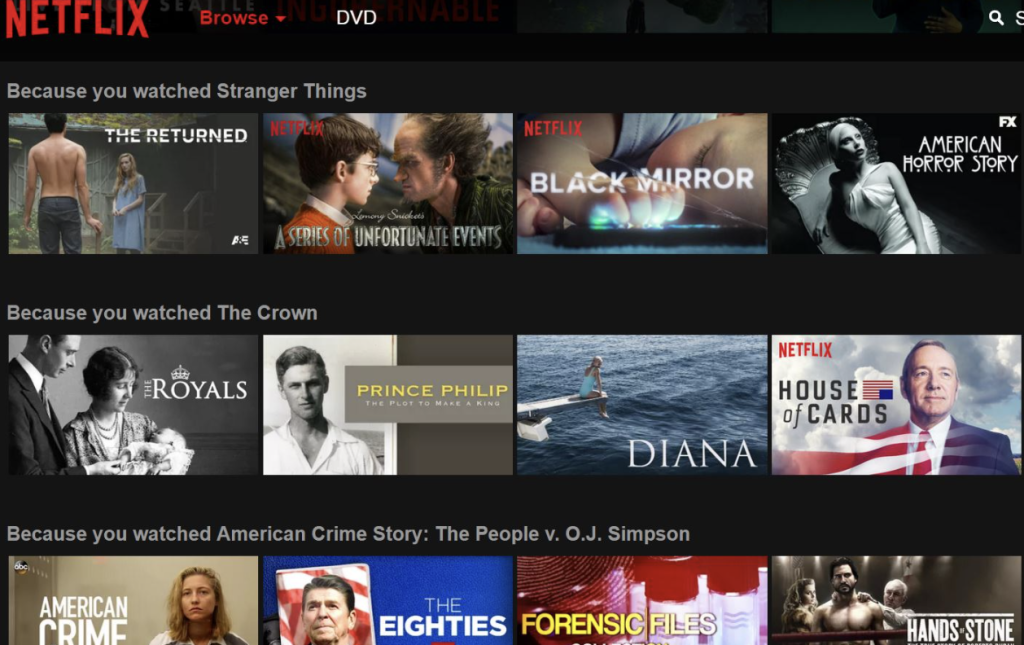Every year, the world of marketing can be distinguished by certain specific trends and consumer behaviors. Without fail, each year something new worth noticing pops out of nowhere.
And a fast and hectic run to be among the first pioneers and race to be the introducers of that new ‘thing’, begins.
💡 Read Creating a Marketing Strategy that Works: Benefits, Steps, Tools
This year was no exception. AI went big with ChatGPT, entering all realms of marketing and this is just the beginning. Experts predict that AI will craft narratives that resonate on a personal level, leveraging data to understand and predict audience behaviours and preferences. What else does 2024 have in store for us when it comes to marketing? Let’s find out.
Top 5 Marketing Trends for 2024
The world of marketing often has its own, sometimes crazy, rules. Still, it’s no surprise that despite them, there always are some patterns that can be noticed. In this article, we want to talk about those patterns.
There are five of them, to be precise, that experts agree on in terms of what we can expect to see in 2024.
Augmented Reality (AR) Integration
Marketers are very likely to leverage AR to create immersive and interactive brand experiences. This could include AR-powered advertisements, virtual try-on experiences for products, and location-based AR campaigns. Brands may find innovative ways to use AR to engage consumers in both online and physical spaces.
Retail giants such as IKEA have already embraced AR. It allows customers to visualize how furniture will look in their homes before making a purchase. This not only reduces the uncertainty associated with online shopping but also transforms the entire customer journey into a personalized, interactive adventure.

But AR’s impact goes beyond the digital realm. Picture a city square bustling with life, where a simple scan of a poster transforms into a virtual scavenger hunt, revealing exclusive discounts and promotions from nearby businesses. This blending of the physical and virtual worlds is a testament to the limitless possibilities that AR brings to location-based marketing.
Sustainable and Ethical Marketing
2024 is set to be a pivotal year where sustainability and ethics take center stage. Consumers, now more than ever, are discerning in their choices. They seek brands that align with their values and contribute positively to the world. This shift has catalyzed a surge in sustainable and ethical marketing practices. And consequently, authenticity becomes a key currency in brand-consumer relationships.
Take, for instance, the fashion industry, a sector traditionally associated with environmental concerns. In response, leading brands are making strides toward sustainable practices. Patagonia, a pioneer in ethical marketing, not only produces high-quality outdoor gear but has become a vocal advocate for environmental causes. Their “Worn Wear” initiative encourages customers to buy used Patagonia items, fostering a culture of reuse and reducing the overall environmental impact of clothing production.

Beyond the fashion realm, companies like TOMS have embedded ethical practices into their business model. For every pair of shoes sold, TOMS donates a pair to a child in need. This “One for One” approach not only addresses social issues but also serves as a powerful marketing message, resonating with consumers who appreciate the brand’s commitment to making a positive impact on a global scale.
Personalized AI-Driven Content
The era of one-size-fits-all content is giving way to a new paradigm—personalized AI-driven content. As we navigate the challenges of 2024, artificial intelligence is bound to revolutionize how brands connect with their audiences. Machine learning algorithms, armed with vast datasets, enable marketers to dissect consumer behaviors and preferences, paving the way for hyper-personalized content experiences.
Consider the streaming giant, Netflix, a trailblazer in the realm of personalized content recommendations. Their algorithm analyzes viewing history, genre preferences, and even viewing times to curate a tailored selection of movies and TV shows for each user. This level of personalization not only keeps users engaged but also contributes significantly to the platform’s subscriber retention.

Voice Search Optimization
With the growing popularity of voice-activated devices and virtual assistants, optimizing for voice search will become a crucial aspect of digital marketing. Marketers will need to adapt their SEO strategies to accommodate conversational queries and long-tail keywords that align with how people naturally speak. Voice-optimized content and advertisements could become a standard practice in 2024.
Consider the ubiquity of virtual assistants like Amazon’s Alexa, Apple’s Siri, and Google Assistant. These voice-activated technologies have fundamentally changed the way users interact with their devices, and consequently, how they search for information. Statistics indicate that by 2024, a significant percentage of online searches will be voice-initiated.
Metaverse Marketing
The concept of the metaverse, a collective virtual shared space, is gaining traction. In 2024, marketers may explore opportunities within the metaverse to connect with audiences in new and creative ways. Virtual events, product launches, and branded experiences within metaverse platforms could become a significant part of marketing strategies.
Some of the popular examples of exploring metaverse include Decentraland. This virtual world built on blockchain technology, hosted virtual fashion shows where digital fashion items were showcased and sold. Users could purchase virtual clothing items using cryptocurrency, providing a glimpse into the potential future of virtual fashion and commerce within the metaverse.

To Conclude
We’re sure that we can all admit that the marketing industry is one that is strictly connected to, and managed by people. After all, marketing is all about influencing people, whether we like it or not. Therefore, a lot of the trends and behaviors that people adopt are usually reflected in the ways that marketing is performed – sooner or later.